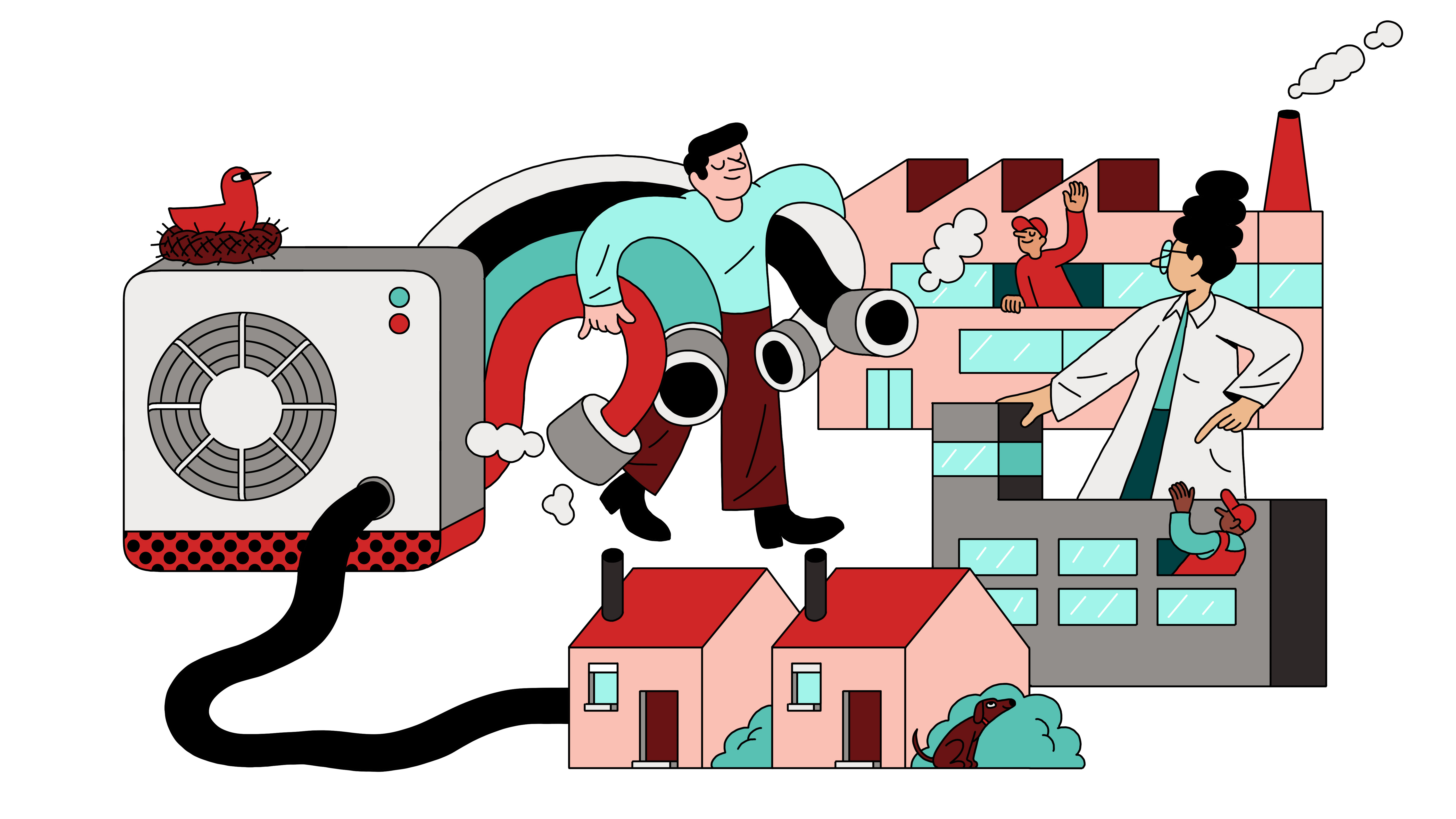Heat pumps: 10 Breakthrough Technologies 2024
Heat pumps are a well-established technology. Now they’re starting to make real progress on decarbonizing homes, buildings, and even manufacturing.

WHO
Daikin, Mitsubishi, Viessmann
WHEN
Now
We’ve entered the era of the heat pump.
Heat pumps are appliances that can cool and heat spaces using electricity. Many buildings today are still heated with fossil fuels, specifically natural gas. Switching to electric heat pumps that run on renewable energy could help homes, offices, and even manufacturing facilities cut their emissions dramatically.
While heat pumps have been used in buildings since the mid-20th century, the technology is breaking through in a new way. Global sales of heat pumps grew by 11% in 2022, the second consecutive year of double-digit growth, though that rate may have slowed in 2023. Europe saw the most dramatic shift, with a 40% growth in heat pump installations through 2022, largely driven by the energy crisis stemming from the Russia-Ukraine war and by efforts to move away from natural gas.
Asia is another hot spot, with China leading global installations and China and Japan together accounting for more than half of new patents filed on heat pump technology since 2010. New approaches are enabling heat pumps to reach higher temperatures, which could allow the technology to help clean up industrial manufacturing by supplying power to generate steam used in food processing and paper making.
In total, heat pumps have the potential to cut global emissions by 500 million tons in 2030—as much as pulling all cars in Europe today off the roads. That would require the total number of heat pumps installed to reach about 600 million by the end of the decade. (That’s about 20% of the heating needs for all the world’s buildings.)
There are still big challenges ahead for heat pumps, including ramping production to meet rising demand and ensuring that the electrical grid is robust enough to supply electricity to these and other climate-focused technologies. But all signs indicate that heat pumps are entering their heyday.
Deep Dive
Climate change and energy
The problem with plug-in hybrids? Their drivers.
Plug-in hybrids are often sold as a transition to EVs, but new data from Europe shows we’re still underestimating the emissions they produce.
Harvard has halted its long-planned atmospheric geoengineering experiment
The decision follows years of controversy and the departure of one of the program’s key researchers.
Decarbonizing production of energy is a quick win
Clean technologies, including carbon management platforms, enable the global energy industry to play a crucial role in the transition to net zero.
The hard lessons of Harvard’s failed geoengineering experiment
Some observers argue the end of SCoPEx should mark the end of such proposals. Others say any future experiments should proceed in markedly different ways.
Stay connected
Get the latest updates from
MIT Technology Review
Discover special offers, top stories, upcoming events, and more.